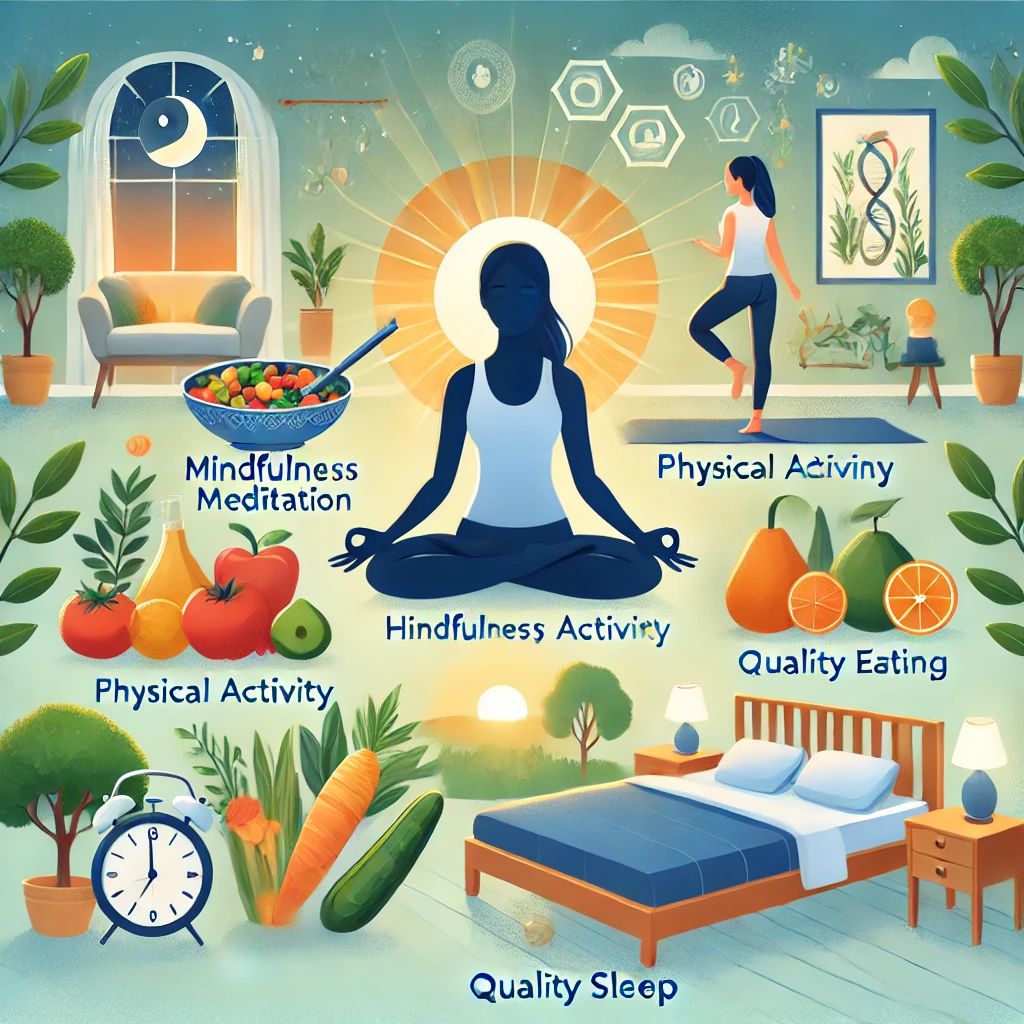
In the intricate dance of life, stress often finds its way into our daily rhythm, disrupting our harmony and peace. Yet, mastering the art of stress management can transform this inevitable experience into an opportunity for growth and resilience. Here, we explore practical and effective techniques to manage stress, enhancing your journey towards a balanced and healthy lifestyle.
Embrace Mindfulness and Meditation
Mindfulness and meditation are powerful tools for stress management. By bringing your attention to the present moment, these practices can help you develop a deeper awareness of your thoughts and feelings without judgment.
- Mindfulness: Engage in activities that promote mindfulness, such as deep breathing exercises, mindful eating, or simply paying attention to your surroundings. This practice helps you stay grounded and reduces the impact of stress.
- Meditation: Dedicate a few minutes each day to meditate. Find a quiet space, close your eyes, and focus on your breath. Meditation can help calm your mind, reduce anxiety, and improve overall mental clarity.
Prioritize Physical Activity
Physical activity is a natural stress reliever. Exercise releases endorphins, which are chemicals in the brain that act as natural painkillers and mood elevators.
- Find Your Routine: Whether it's a brisk walk, a yoga session, or a high-intensity workout, find an exercise routine that you enjoy and can stick to. Regular physical activity helps you manage stress and improve your physical health.
- Move Throughout the Day: Even small movements throughout the day, such as stretching or taking short walks, can help reduce stress levels and keep your body energized.
Cultivate a Support Network
Having a strong support network is crucial for managing stress. Connecting with friends, family, or support groups provides emotional support and a sense of belonging.
- Communicate: Share your thoughts and feelings with trusted individuals. Talking about your stressors can provide relief and new perspectives on managing them.
- Seek Professional Help: If stress becomes overwhelming, consider seeking help from a therapist or counselor. Professional guidance can offer strategies and support tailored to your specific needs.
Maintain a Balanced Lifestyle
A balanced lifestyle is essential for stress management. This involves finding harmony between work, leisure, and self-care.
- Set Boundaries: Learn to say no and set limits to avoid overcommitting yourself. Prioritize tasks and focus on what truly matters.
- Schedule Downtime: Make time for activities that bring you joy and relaxation. Whether it’s reading, gardening, or pursuing a hobby, ensure you have regular downtime to recharge.
Practice Healthy Eating Habits
Nutrition plays a significant role in how your body handles stress. Eating a balanced diet can help stabilize your mood and energy levels.
- Stay Hydrated: Drink plenty of water throughout the day. Dehydration can increase stress levels and affect your overall well-being.
- Eat Nutrient-Rich Foods: Focus on a diet rich in fruits, vegetables, lean proteins, and whole grains. Avoid excessive caffeine and sugar, which can exacerbate stress.
Enhance Sleep Quality
Quality sleep is essential for effective stress management. Lack of sleep can increase stress levels and impact your mood and cognitive function.
- Establish a Routine: Create a consistent sleep schedule by going to bed and waking up at the same time each day. This helps regulate your body's internal clock.
- Create a Restful Environment: Make your bedroom a sanctuary for sleep. Keep it cool, dark, and quiet. Avoid screens and stimulating activities before bedtime to promote better sleep.
Engage in Relaxation Techniques
Incorporating relaxation techniques into your daily routine can significantly reduce stress and promote a sense of calm.
- Deep Breathing: Practice deep breathing exercises to help calm your nervous system. Take slow, deep breaths, hold for a few seconds, and exhale slowly.
- Progressive Muscle Relaxation: This technique involves tensing and then slowly relaxing each muscle group in your body. It can help release physical tension and reduce stress.
Conclusion
Stress management is an essential skill that enhances your quality of life and well-being. By incorporating these techniques into your daily routine, you can cultivate resilience, maintain balance, and navigate life’s challenges with greater ease. Embrace these practices, and let them guide you towards a healthier, more harmonious life.


